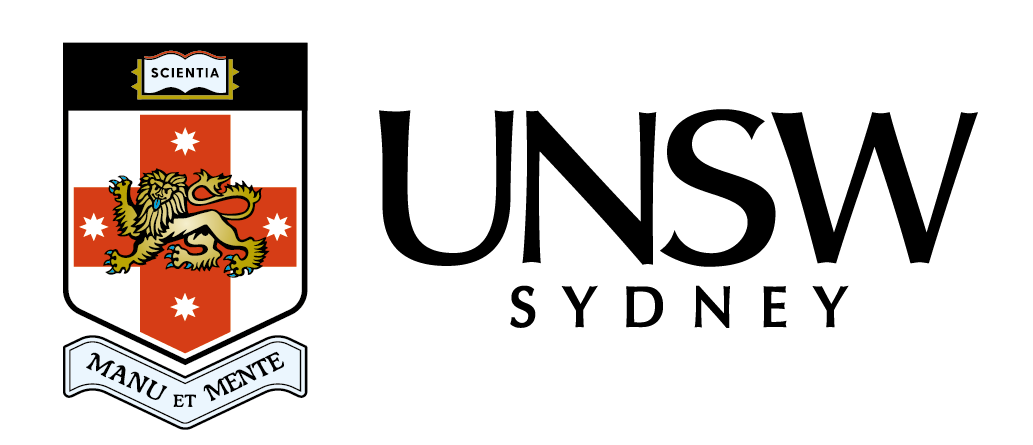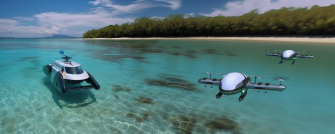


Overview
Autonomous technologies (including lethal autonomous weapons, AI-based control and decision-making systems, and self-piloting/self-driving vehicles) are changing or can possibly change the composition, doctrine, and strategic posture of the military forces deployed in the Indo-Pacific. The Pacific Rim Strategic Policy Conference is concerned with the diffusion of these technologies among states, non-state, and inter-state actors and its implications for security & defence in the region. Speakers will discuss how the specificity of military cultures, innovation ecosystems, and even ethnic and religious traditions may determine different attitudes, perceptions, and expectations toward autonomous technologies, thus shaping the allied forces’ capability to achieve full interoperability through technological cooperation. Comprehending cultural diversity is crucial, from a strategic policy perspective, as it impacts the degree to which technological innovation is embraced or resisted and thus determines the effectiveness of autonomous systems across strategic, operational and tactical levels.
Technology, Strategy, and Cultures in the Indo-Pacific Theatre
At a time when new security agreements and strategic technological partnerships are being signed by key regional players, the Pacific Rim Strategic Policy Conference brings together experts of international security, technology designers and developers, ethicists, and social scientists to investigate the diversity of stances toward autonomy and its strategic significance. Academics, government officers (including research and military personnel), and representatives of technological firms are invited to attend this conference and contribute presentations about:
(A) expectations and beliefs of different groups and institutions toward AI-based applications, including the militaries participating in joint exercises and technology exchange programmes;
(B) diverging public opinions about the ethico-legal issues associated with autonomous weapon systems in different countries and among different groups;
(C) the diffusion of autonomous technologies and its impact on the strategic posture of national militaries, international coalitions, and non-state actors in the Indo-Pacific region.
Themes
The conference programme comprises invited lectures, submitted papers, panel discussions, and workshop activities. They will address any topics relevant to the broad theme of the conference, including, but not limited to:
- Joint exercises in the Indo-Pacific: how understanding cultural specificities could facilitate interoperability.
- AUKUS strategic partnership and other security agreements: the political significance of technological cooperation.
- Regulating or banning lethal autonomous weapons? Diverging perceptions of ethico-legal issues in different countries.
- The Security & Defence PLuS Alliance and the AUKUS partnership: academic collaborations and vision creation.
- Models of technology diffusion: the role of socio-economic, geographical, and cultural specificities.
- Attitudes and perceptions in human-autonomy interaction: the cognitive precursors of adoption propensity.
- Setting international standards to assess and validate autonomous capabilities: exploring uncharted territories.
- Soldier-robot teaming: the role played by acceptance, trust, tolerance, and anthropomorphism.
- Culturally-aware design of autonomous military technologies: lessons from social robotics, human-machine interaction, and human factors research.
- Value-sensitive design and societal acceptance: is cultural diversity a challenge or a resource?
- What causal role does culture play in conflict, if any at all? Culturalism versus Realism in security studies.
- Public trust in governments and security technology: comparing different models of social cohesion.
This conference is part of the project "Cultural Attitudes in the Age of Autonomy: Australian Policy and the Ethico-Legal Deployment of Human-Machine Teams in the Indo-Pacific” (Chief Investigator Dr Max Cappuccio), supported by the Australian Government through a grant by Defence. The views expressed herein are those of the authors and are not necessarily those of the Australian Government or Defence.
Abstracts
Submit your abstract (250-500 words) by 31 October 2023
For information: m.cappuccio@unsw.edu.au
Registration
Agenda
- Session 1
- Session 2
- Session 3
- Session 4
- Session 5
Wednesday, 29 November, Afternoon
AUKUS Partnership and Systems Interoperability
Chair: Max Cappuccio
2.30pm - 2.40pm
Rector's welcome address - Emma Sparks, UNSW
2.40pm - 3.10pm
Keynote: The impact of robotics and other advanced technologies on the character of future conflict in the Indo-Pacific - Ian Langford, UNSW
3.10pm - 3.30pm
Remote: Human-Artificial Intelligence Teaming - Nancy Cooke, ASU
3.30pm - 3.50pm
Talk: Drone Racing's utility to contemporay operations and the next tech leap - Keirin Joyce, RAAF
3.50pm - 4.10pm
Talk: AUKUS as Big Science - Marigold Black, Norfolk
4.10pm - 4.30pm
Remote: Adaptation, Innovation, or Transformation? Imagining the Changing Character of War in the Indo-Pacific - Alessio Patalano, King's College London
4.30pm - 5.10pm
Panel 1: AUKUS Partnership and Systems Interoperability
Chair: Douglas Guilfoyle, UNSW
Panel: Elizabeth Williams, ANU
Remote: Henri Van Soest, RAND
Panel: Keirin Joyce, RAAF
Remote: Alessio Patalano, King's College London
Thursday, 30 November, Morning
Lethal Autonomous Weapons and Ethical Attitudes
Chair: Max Cappuccio
9.00am - 9.30am
Keynote: Lethal Autonomous Weapons: Challenges and Opportunities - Toby Walsh, UNSW
9.30am - 9.50am
Talk: Minotaur Warfighting in the Indo-Pacific? - Rob Sparrow, Monash
9.50am - 10.10am
Talk: Meaningful Humand Control over Military AI: Towards Human-machine Teaming - Jurriaan van Diggelen, TNO HART
10.10am - 10.30am
Talk: Navigating the Moral Landscape of Lethal Autonomous Weapons Systems: A Critical Examination of Responsibility Gaps - Ann-Katrien Oimann, RMA KU
10.30am - 10.50am
Break
10.50am - 11.20am
Keynote: Machines Masquerading a Moral Agents: the Danger of Misplaced Responsibility in War - Toni Erskine, ANU
11.20am - 11.40am
Talk: Target Discriminaion: How Racial Biases Affect Public Support for U.S. Drone Strikes - Srinjoy Bose, UNSW
11.40am - 12.00pm
Remote: Battlefield Trust for Human-Machine Teaming: Evidence from the US Military - Paul Lushenko, USAWC
12.00pm - 12.40pm
Panel 2: Lethal Autonomous Weapons and Ethical Attitudes
Chair: Deane Peter Baker, UNSW
Panel: Jurriaan van Diggelen, TNO HART
Panel: Ann-Katrien Oimann, RMA KU
Panel: Srinjoy Bose, UNSW
Remote: Paul Lushenko, USAWC
Thursday, 30 November, Afternoon
Asymmetric Warfare and Technology gaps
Chair: Gavin Mount
2.00pm - 2.30pm
Keynote: AI driven Autonomous Targeting Process for Minimising Collateral Damages - Jong Hwan Kim, Korea Military Academy Seoul
2.30pm - 2.50pm
Talk: Capability Offsets: Exploring the Promised Opportunity of Emerging Technology - Adam Hepworth, RICO
2.50pm - 3.10pm
Talk: Generating and maintaining asymmetric advantage through RAS-AI: Opportunities and Barriers - Austin Wyatt, RAND Australia
3.10pm - 3.30pm
Talk: The Precision Payload Delivery Systems (PPDS) - aka the Cardboard Done - Amanda Holt, Sypaq Australia
3.30pm - 3.50pm
Break
3.50pm - 4.20pm
Keynote: Future of loitering munitions in the Asia-Pacific - Oishee Majumdar, Janes
4.20pm - 4.40pm
Talk: Fly or die: The rapid advance of UAS technology and operating concepts in the Russia-Ukraine conflict - Carl Rhodes, Robust Policy
4.40pm - 5.00pm
Remote: Emotions, Culture, and Geopolitics: the AI Strategies of Emerging Powers - Miguel Gomez, NUS
5.00pm - 5.40pm
Panel 3: Asymmetric Warfare and Technology gaps
Chair: Austin Wyatt, RAND Australia
Panel: Marcus Hellyer, C2 Robotics
Panel: David Kilcullen, UNSW
Panel: Adam Hepworth, RICO
Talk: Amanda Holt, Sypaq
Remote: Miguel Gomez, NUS
Friday, 1 December, Morning
Strategic Postures and the Rise of Autonomy
Chair: Austin Wyatt
9.00am - 9.30am
Keynote: Japan's approaches to military applications of autonomous technologies - Yuka Koshino, IISP
9.30am - 9.50am
Remote: How autonomous wrapon systems are changing the doctrine and role of military teams? - Mikolaj Firlej, Oxford
9.50am - 10.10am
Talk: Space and Autonomy - the importance of the high frontier in the robotic battlespace and Australia's future in space - Malcolm Davis, ASPI
10.10am - 10.30am
Talk: DARPA's ADvanced Acclimation and Protection Tool for Environmental Readiness (ADAPTER) - Katrina Michael, ASU
10.30am - 10.50am
Break
10.50am - 11.20am
Keynote: South Korea Indo-Pacific strategy and maritime security - Hackyoung Bae, Korean National Defense University
11.20am - 11.40am
Talk: When the Teeth Eat the Tail: The Past and Present of Defence A.I. in Canada -Robert Engen, Deakin
11.40am - 12.00pm
Talk: Enhancing Soldier-Robot Teaming Through Soft Programming, Platooning and Strategic Deployment -Gavin Gillett, Nova Systems
12.00pm - 12.40pm
Panel 4: Strategic Postures after the Rise of Autonomy
Chair: Malcolm Davis, ASPI
Panel: Travis Ellemans, Hanwha Australia
Panel: Peter Layton, Griffith
Panel: Gavin Gillett, Nova Systems
Panel: Katina Michael, ASU
Remote: Mikolaj Firlej, Oxford
Friday, 1 December, Afternoon
Policy and Governance of AI and Data
Chair: Douglas Guilfoyle
2.00pm - 2.30pm
Keynote: Algorithmic Warfare, AI, and Achieving the Asymmetric Outcome - Mike Kelly, Palantir
2.30pm - 2.50pm
Talk: AUKUS and the challenge of time - Lesley Seebeck, UNSW
2.50pm - 3.10pm
Talk: The Strategic Drivers for Autonomous Weapons in the Indo-Pacific - Marcus Hellyer, SAA
3.10pm - 3.30pm
Talk: Disinformation Bots and the Indo-Pacific - Gavin Mount, UNSW
3.30pm - 3.50pm
Break
3.50pm - 4.10pm
Talk: Thinking Conflict, Competition and Cooperation: Using Cognition as an Organising Construct - Peter Layton, Griffith
4.10pm - 4.30pm
Talk: "Small mobile pieces of national sovereignty"? Unscrewed vessels, naval diplomacy and the challenge of signalling - Richard Dunley, UNSW
4.30pm - 4.50pm
Remote: The Impact of Robotics, Autonomous Systems & AI (RAS-AI) on the Global Security - Hideo Tomikawa, National Institute for Defense Studies
4.50pm - 5.30pm
Panel 5: Policy and Governance of AI and Data
Chair: Gavin Mount, UNSW
Panel: Mike Moroney, RAAF
Panel: Andrew Lampert, Palantir
Remote: Benjamin Boudreaux, RAND Corporation
Panel: Lesley Seebeck, UNSW
Panel: Rob Sparrow, Monash
Remote: Hideo Tomikawa, National Institute of Defense Studies
Venue
University of New South Wales Canberra at Australian Defence Force Academy, Northcott Dr, Campbell, ACT 2612
Confirmed speakers and panellists
- Hackyoung Bae (Korean National Defense University)
- Marigold Black (Norfolk)
- Srinjoy Bose (UNSW Sydney)
- Benjamin Boudreaux (RAND corporation)
- Max Cappuccio (UNSW Canberra)
- Keith Carter (United States Military Academy at West Point)
- Robert Cheek (UVify)
- Nancy J. Cooke (Center for Human, Artificial Intelligence and Robot Teaming at Arizona State University)
- Malcolm Davis (the Australian Strategic Policy Institute)
- Richard Dunley (UNSW Canberra)
- Robert C. Engen (Centre for Future Defence & National Security at Australian War College Canberra)
- Toni Erskine (Coral Bell School of Asia Pacific Affairs at the Australian National University)
- Mikolaj Firlej (AI Institute, University of Surrey; Oxford University)
- Gavin Gillett (AIS Autonomous & Intelligent Systems, Nova Systems)
- Miguel Alberto Gomez (Lee Kuan Yew School of Public Policy at the National University of Singapore)
- Douglas Guilfoyle (UNSW Canberra)
- Travis Ellemans (Hanwha Defence Australia)
- Marcus Hellyer (Strategic Analysis Australia; C2 Robotics)
- Adam Hepworth (Army’s Robotic & Autonomous Systems Implementation & Coordination Office)
- Amanda Holt (Sypaq)
- Keirin Joyce (Royal Australian Air Force)
- Mike Kelly (Palantir)
- David Kilcullen (UNSW Canberra)
- Jong Hwan Kim (Korea Military Academy Seoul)
- Yuka Koshino (International Institute for Strategic Studies)
- Andrew Lampert (Palantir)
- Ian Langford (UNSW Canberra, Defence Research Institute)
- Peter Layton (Griffith Asia Institute, Griffith University)
- Paul Lushenko (the U.S. Army War College)
- Oishee Majumdar (Janes)
- Katina Michael (Arizona State University)
- Gavin Mount (UNSW Canberra)
- Mike Moroney (Royal Australian Air Force, Jericho)
- Ann-Katrien Oimann (Royal Military Academy and KU Leuven)
- Alessio Patalano (Centre for Grand Strategy, King’s College London)
- Carl Rhodes (Robust Policy)
- Lesley Seebeck (UNSW, School of Professional Studies)
- Robert Sparrow (Monash University)
- Hideo Tomikawa (The National Institute of Defense Studies, Japan)
- Jurriaan van Diggelen (TNO, Defence, Security and Safety, the Netherlands)
- Henri van Soest (RAND Europe)
Advisory board
- Max Cappuccio (UNSW School of Engineering & IT), chair
- Deane Baker (UNSW School of Humanities & Social Sciences)
- Matthew Garratt (UNSW AI Institute)
- Nicole Magney (Security & Defence PLuS Alliance)
- James Morrison (UNSW Defence Research Institute)
- Gavin Mount (UNSW School of Humanities & Social Sciences)
- Austin Wyatt (RAND corporation)
Organizers
- UNSW AI Institute (Canberra AI Hub)
- UNSW Canberra School of Engineering & Technology (Trusted Autonomy Group)
- UNSW Canberra School of Humanities & Social Sciences
- UNSW Defence Research Institute
Partners
- RAND corporation
- Security & Defence PLuS Alliance
Participants
- Australian Strategic Policy Institute
- C2 Robotics
- Hanwha Defense Australia
- International Institute for Strategic Studies
- Janes
- Jericho
- Limes
- Nova Systems
- Palantir
- RICO (Australian Army, Robotic and Autonomous Systems Implementation & Coordination Office)
- Royal Australian Airforce
- Strategic Analysis Australia
- Sypaq
- UVif


